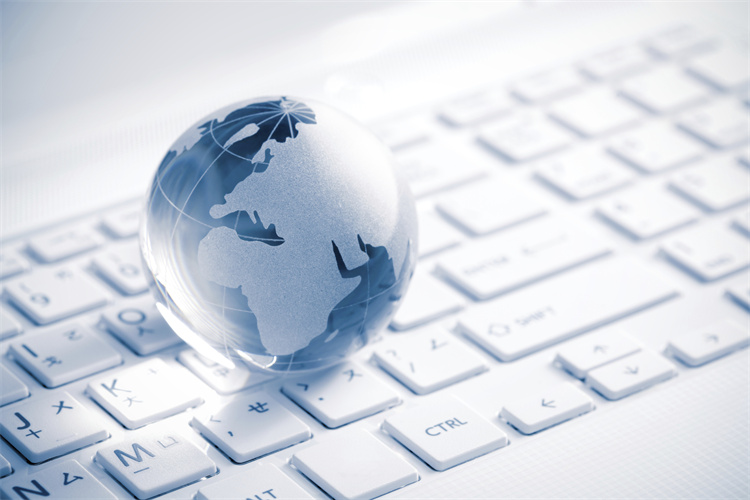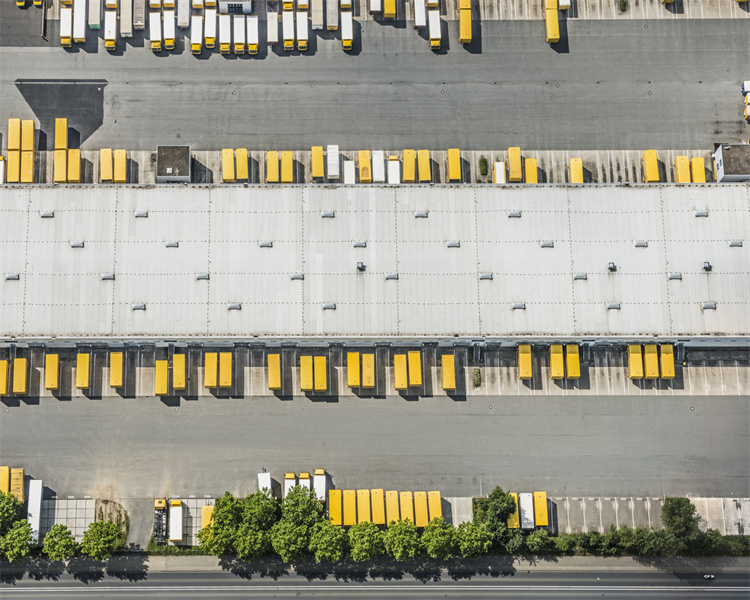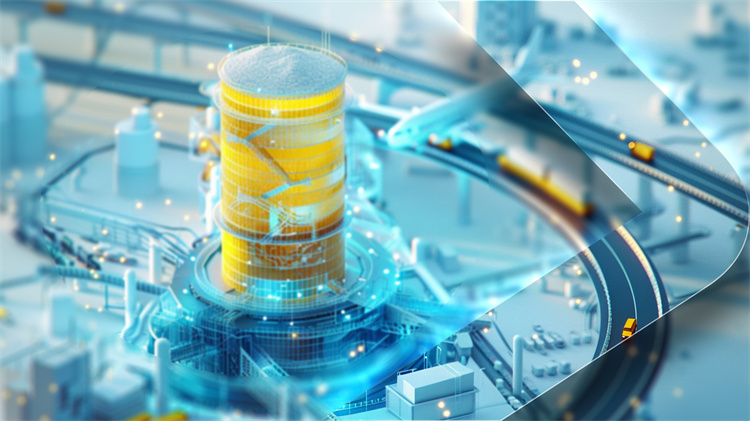Emerging Logistics Technology Trends for 2025

Logistics technology plays a crucial role in transforming supply chain operations. The industry experiences a transformative shift due to significant advancements in technology solutions. These innovations drive efficiencies, reduce costs, and enable real-time decision-making. By 2025, businesses can expect a potential 40% reduction in logistics costs and a 25% to 70% increase in productivity. The rapid pace of technological advancements underscores the urgency for industry stakeholders to embrace new technologies. This adoption will enhance efficiency, reduce costs, and elevate customer satisfaction.
Emerging Logistics Technology: Automation and Robotics

Warehouse Automation
Automated Storage and Retrieval Systems (AS/RS)
Automated Storage and Retrieval Systems (AS/RS) revolutionize warehouse operations. These systems use advanced robotics to handle storage and retrieval tasks. Businesses achieve a 40% reduction in logistics costs by implementing AS/RS. The technology optimizes space utilization and increases efficiency. Companies experience a significant boost in productivity, ranging from 25% to 70%. AS/RS minimizes human error and enhances accuracy in inventory management.
Robotics in picking and packing transforms supply chain processes. Robots increase speed and precision in handling goods. Logistics technology integrates robotics to reduce labor costs and improve reliability. Robotic systems collaborate with human workers to optimize order fulfillment. Warehouses benefit from reduced errors and faster processing times. The adoption of robotics leads to more responsive supply chain operations.
Robotics in picking and packing transforms supply chain processes. Robots increase speed and precision in handling goods. Logistics technology integrates robotics to reduce labor costs and improve reliability. Robotic systems collaborate with human workers to optimize order fulfillment. Warehouses benefit from reduced errors and faster processing times. The adoption of robotics leads to more responsive supply chain operations.
Autonomous Vehicles
Drones for Delivery
Drones for delivery represent a breakthrough in logistics technology. These autonomous vehicles provide rapid and efficient delivery solutions. Companies utilize drones to reach remote or congested areas. Drones enhance delivery speed and reduce transportation costs. The technology supports real-time tracking and ensures timely deliveries. Drones contribute to a more sustainable logistics model by reducing carbon emissions.
Self-driving Trucks
Self-driving trucks redefine transportation in the logistics industry. These vehicles operate without human intervention, increasing safety and efficiency. Logistics technology leverages self-driving trucks to optimize long-haul transportation. The integration of autonomous vehicles addresses labor shortages in the industry. Self-driving trucks offer consistent and reliable delivery schedules. Companies benefit from reduced fuel consumption and operational costs.
Internet of Things (IoT) in Logistics Technology

Real-time Tracking
Smart Sensors
Smart sensors revolutionize logistics technology by enabling real-time tracking. These devices monitor shipments and provide instant updates. Companies gain insights into location, temperature, and condition. This information enhances supply chain visibility and efficiency. Smart sensors contribute to smarter operations by reducing delays and errors. Businesses achieve improved customer satisfaction through timely deliveries.
Fleet Management Systems
Fleet management systems utilize IoT for enhanced logistics technology. These systems track vehicle locations and optimize routes. Companies benefit from reduced fuel consumption and operational costs. Real-time data allows for proactive decision-making. Fleet management systems improve safety and compliance. Logistics operations become more efficient and responsive.
Predictive Maintenance
IoT-enabled Equipment Monitoring
IoT-enabled equipment monitoring transforms maintenance practices in logistics technology. Sensors collect data on machinery performance. This data helps predict potential failures before they occur. Companies reduce downtime and maintenance costs. Equipment monitoring ensures optimal performance and longevity. Logistics operations maintain high efficiency and reliability.
Data Analytics for Maintenance
Data analytics plays a crucial role in predictive maintenance within logistics technology. Analyzing data from IoT devices identifies patterns and trends. Companies use this information to schedule timely maintenance. Predictive analytics minimizes unexpected breakdowns and disruptions. Maintenance strategies become more strategic and cost-effective. Logistics technology supports sustainable and eco-friendly practices through efficient resource utilization.
Artificial Intelligence and Machine Learning in Logistics Technology
Demand Forecasting
AI-driven Predictive Analytics
Artificial Intelligence transforms logistics technology by enhancing demand forecasting. Companies use AI-driven predictive analytics to analyze vast datasets. This analysis leads to more accurate demand predictions. Businesses can anticipate market shifts and adjust supply chain strategies. AI reduces errors in forecasting by 20% to 50%, according to McKinsey. Enhanced forecasting minimizes inventory waste and optimizes resource allocation.
Inventory Optimization
AI plays a crucial role in inventory optimization within logistics technology. Companies leverage AI to maintain optimal stock levels. This approach reduces the likelihood of stockouts and overstock situations. AI-driven systems analyze sales patterns and customer preferences. Businesses achieve a 35% reduction in inventory levels. Efficient inventory management enhances customer satisfaction and reduces costs.
Route Optimization
Machine Learning Algorithms
Machine learning algorithms revolutionize route optimization in logistics technology. Companies utilize these algorithms to plan efficient transportation routes. Factors such as traffic, road conditions, and vehicle capacity are considered. AI-based route planning reduces fuel consumption and carbon emissions. Businesses experience a significant decrease in transportation costs. Enhanced route planning improves delivery reliability and service quality.
Dynamic Routing Solutions
Dynamic routing solutions enhance logistics technology by adapting to real-time conditions. AI systems adjust routes based on traffic and weather updates. Companies benefit from reduced delivery times and increased efficiency. Real-time data integration supports proactive decision-making. Businesses achieve a 15% reduction in logistics costs through optimized routing. Dynamic solutions ensure timely deliveries and improve customer experiences.
Blockchain Technology in Logistics
Supply Chain Transparency
Secure Data Sharing
Blockchain technology provides a decentralized ledger system that enhances secure data sharing in logistics. This system records every transaction and movement of goods, ensuring integrity and immutability. Companies like Walmart have successfully implemented blockchain to track food provenance, reducing trace times from weeks to seconds. This efficiency enhances safety and trust while streamlining recall processes. The logistics industry benefits from reduced costs and improved brand reputation.
Traceability Solutions
Blockchain offers robust traceability solutions for complex supply chains. Industries such as pharmaceuticals and luxury goods rely on blockchain for enhanced transparency. The technology ensures every transaction is securely recorded, preventing fraud and enhancing accountability. Stakeholders gain real-time access to accurate information about the movement and status of goods. This visibility supports better control over environmental and social impacts, fostering trust among consumers.
Smart Contracts
Automated Transactions
Smart contracts automate transactions within logistics technology. These digital contracts execute automatically when predefined conditions are met. Automation reduces manual intervention, minimizing errors and delays. Businesses experience streamlined operations and cost savings. The logistics sector benefits from increased efficiency and reliability in transactional processes.
Compliance and Verification
Blockchain technology enhances compliance and verification across supply chains. Every transaction is recorded in a tamper-proof ledger, ensuring authenticity and traceability. Organizations meet compliance requirements by leveraging blockchain's secure platform. Enhanced traceability helps verify product authenticity and eliminates counterfeits. This transparency builds trust with consumers and strengthens quality assurance efforts.
Logistics Technology Trends
JUSDA is highly focused on leveraging emerging logistics technology trends to enhance its supply chain management capabilities. The company is committed to integrating advanced technologies such as big data analysis, cloud platform construction, and IoT information system integration to create a comprehensive information network service. This approach aims to provide customers with extensive information analysis across the network, enabling collaborative operations through the JusLink intelligent system platform.
JUSDA's strategic focus for the next few years includes the development of a real-time collaborative platform, technology advancements, IoT, and big data in supply chain logistics. The company aims to build an intelligent supply chain system that supports both its own and external customers' information systems for supply chain management and operational services. This system is designed to meet highly complex and variable customer demands in an open multi-channel environment.
Additionally, JUSDA is dedicated to product innovation and optimizing standard cost modules to meet diverse market demands. The company is also expanding its global strategic layout, establishing service points worldwide, and enhancing its logistics infrastructure to ensure efficient and secure logistics management.
Overall, JUSDA views emerging logistics technology trends as critical to achieving end-to-end supply chain visibility, real-time monitoring, risk prevention, and enhanced supply chain competitiveness. The company aims to become the best partner in providing supply chain service solutions and ultimately establish a collaborative supply chain ecosystem by uniting upstream and downstream resources.

After the update
Supply Chain Management Solution
Embracing innovative logistics technologies is essential for maintaining a competitive edge in the dynamic market environment. Automation, AI, IoT, and blockchain are not luxuries but necessities for businesses aiming to enhance operational efficiency and customer satisfaction. These technologies offer opportunities for elastic logistics and green practices. However, challenges such as integration and cost must be addressed. Proactive adaptation to these trends ensures businesses remain resilient and responsive. The logistics industry must recognize the urgency to adopt these advancements to thrive in the evolving landscape.
See Also
Tomorrow's Supply Chain Optimization: 5 Influential Developments
Innovative Logistics Technology: An Expedition to Tomorrow
Prepared for Tomorrow? Investigating the Newest in Transportation Tech for Supply Chains
Paving the Way: Tomorrow's Logistics with Digital Innovation
Artificial Intelligence in Supply Chain: Transforming Logistics for the Future
